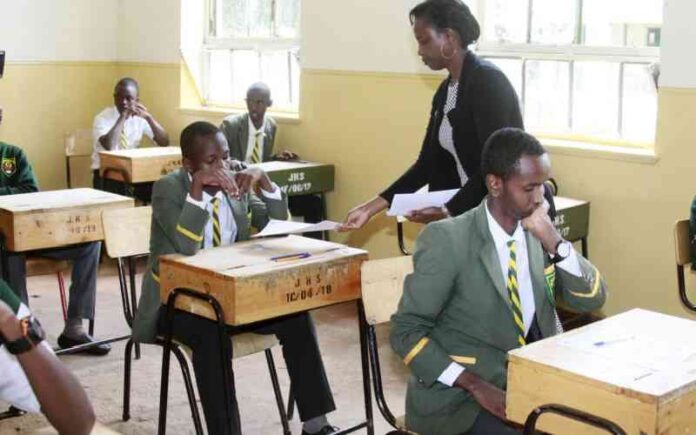Rules to Prevent KCSE Cheating in Two Weeks
Nicholas Letting, CEO of the Kenya Accountants and Secretaries National Examinations Board, has submitted a set of policy recommendations to the Kenya National Examination Council aimed at addressing the issue of cheating during national examinations. One of Leting’s ideas is to deactivate mobile networks in places where cheating is common, minimizing the possibility of exam leaks via mobile phones.
Letting also suggests that the Kenya National examining Council (KNEC) compare itself to other examining organizations that have excelled in examination administration, such as KASNEB and HRMPEB. Furthermore, he suggests blacklisting students who are caught impersonating others as a deterrent to future instances of cheating.
Furthermore, Letting advocates for the engagement of National Intelligence Service (NIS) officials who can act surreptitiously and even masquerade as candidates to discover instances of examination irregularities and cheating. He also advises that examiners be vetted with NIS personnel before being hired to ensure a high level of integrity among those in charge of marking tests.
Looking ahead, Letting underlines the importance of automating assessments by embracing computer-based exams, which would also allow for real-time grading. These proposals were included in a report submitted to parliament by MP Julius Melly, Chairman of the National Assembly Departmental Committee on Education.
Concerns regarding malpractices in the 2022 KCSE prompted the committee’s probe, which included collaboration, mobile phone use in test rooms, impersonation, smuggling of unapproved materials, leakage, and plagiarism. In response, the committee recommends that parliament reassess the legal framework in order to impose harsher punishments for examination violations and handle new offenses connected to information, communication, and technology, as well as social media platforms.
The research also suggests that the Teacher Service Commission (TSC) investigate additional criteria for teacher promotions, such as discipline, infrastructure development, co-curricular activities, and personal development, beginning with the 2024/2025 test cycle.
Furthermore, the committee requests greater financing for KNEC in 2024/2025 and later years, particularly for competitive and timely examiner remuneration, transportation of test materials and employees, and the provision of acceptable examiner lodging at marking locations.
The additional funds should promote the digitalization of examination processes and ensure conformity with national examination administration norms, while also increasing personnel to improve examination management efficiency and effectiveness.
The report continues by advising that KNEC consider holding national tests at various times throughout the year in order to reduce the load on employees. These recommendations come as form four students prepare to begin their KCSE exams for 2023 at the end of the month.




![Kenya’s Top 10 Marketable Degree Programs [List] Kenya's Top 10 Marketable Degree Programs [List]](https://opportunitiesforkenyans.co.ke/wp-content/uploads/2025/02/Kenyas-Top-10-Marketable-Degree-Programs-List-100x70.jpg)

